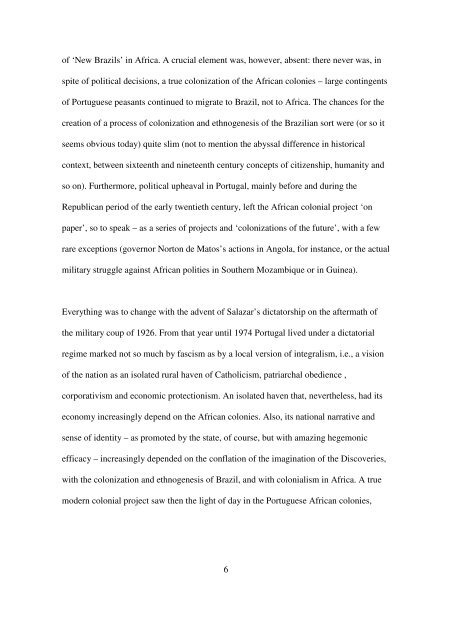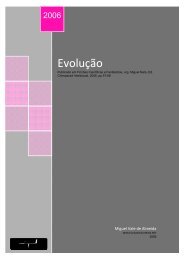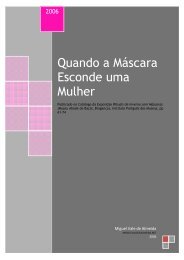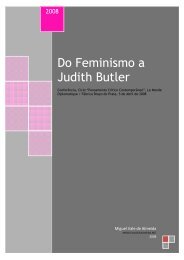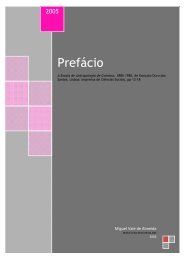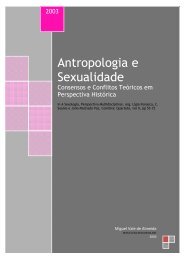On the Lusophone Postcolony: - Miguel Vale de Almeida
On the Lusophone Postcolony: - Miguel Vale de Almeida
On the Lusophone Postcolony: - Miguel Vale de Almeida
You also want an ePaper? Increase the reach of your titles
YUMPU automatically turns print PDFs into web optimized ePapers that Google loves.
of ‘New Brazils’ in Africa. A crucial element was, however, absent: <strong>the</strong>re never was, in<br />
spite of political <strong>de</strong>cisions, a true colonization of <strong>the</strong> African colonies – large contingents<br />
of Portuguese peasants continued to migrate to Brazil, not to Africa. The chances for <strong>the</strong><br />
creation of a process of colonization and ethnogenesis of <strong>the</strong> Brazilian sort were (or so it<br />
seems obvious today) quite slim (not to mention <strong>the</strong> abyssal difference in historical<br />
context, between sixteenth and nineteenth century concepts of citizenship, humanity and<br />
so on). Fur<strong>the</strong>rmore, political upheaval in Portugal, mainly before and during <strong>the</strong><br />
Republican period of <strong>the</strong> early twentieth century, left <strong>the</strong> African colonial project ‘on<br />
paper’, so to speak – as a series of projects and ‘colonizations of <strong>the</strong> future’, with a few<br />
rare exceptions (governor Norton <strong>de</strong> Matos’s actions in Angola, for instance, or <strong>the</strong> actual<br />
military struggle against African polities in Sou<strong>the</strong>rn Mozambique or in Guinea).<br />
Everything was to change with <strong>the</strong> advent of Salazar’s dictatorship on <strong>the</strong> aftermath of<br />
<strong>the</strong> military coup of 1926. From that year until 1974 Portugal lived un<strong>de</strong>r a dictatorial<br />
regime marked not so much by fascism as by a local version of integralism, i.e., a vision<br />
of <strong>the</strong> nation as an isolated rural haven of Catholicism, patriarchal obedience ,<br />
corporativism and economic protectionism. An isolated haven that, never<strong>the</strong>less, had its<br />
economy increasingly <strong>de</strong>pend on <strong>the</strong> African colonies. Also, its national narrative and<br />
sense of i<strong>de</strong>ntity – as promoted by <strong>the</strong> state, of course, but with amazing hegemonic<br />
efficacy – increasingly <strong>de</strong>pen<strong>de</strong>d on <strong>the</strong> conflation of <strong>the</strong> imagination of <strong>the</strong> Discoveries,<br />
with <strong>the</strong> colonization and ethnogenesis of Brazil, and with colonialism in Africa. A true<br />
mo<strong>de</strong>rn colonial project saw <strong>the</strong>n <strong>the</strong> light of day in <strong>the</strong> Portuguese African colonies,<br />
6


